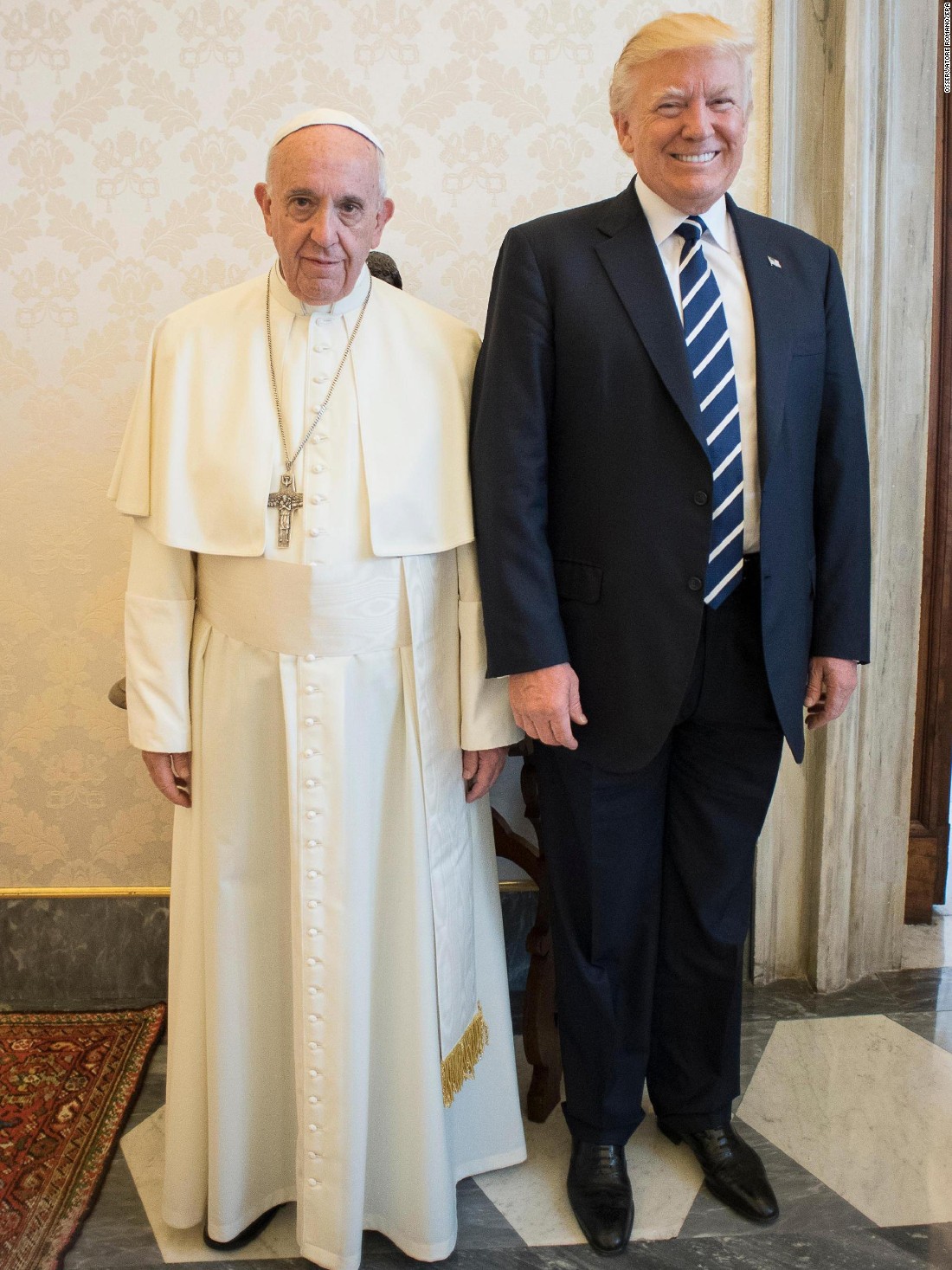Is Pope Francis a Mason? This question has sparked debates and controversies among both religious and secular communities. As the first Jesuit pope, Pope Francis has often been the subject of speculation regarding his ties to Freemasonry. However, these claims are often based on misinformation or misunderstandings. In this article, we will delve into the truth behind these allegations and explore the Vatican's stance on Freemasonry.
Throughout history, Freemasonry has been viewed with suspicion by the Catholic Church. Despite this, rumors persist about connections between high-ranking church officials and Masonic lodges. With Pope Francis at the helm of the Catholic Church, it is essential to examine whether there is any merit to these claims. By analyzing official statements and historical context, we can better understand the relationship between the Catholic Church and Freemasonry under Pope Francis' leadership.
Pope Francis and the Masonic Connection
The question of whether Pope Francis is connected to Freemasonry arises due to his friendship with the head of the Grand Orient Lodge. The Grand Orient lodges have been known to be influenced by Jesuit ideals, which might explain why some see a connection between the two. However, this association does not necessarily imply membership or endorsement.
Pope Francis' background as a Jesuit priest may contribute to misunderstandings about his involvement with Freemasonry. While the Jesuits share certain values with some Masonic principles, such as education and social justice, they remain distinct entities. It is crucial to differentiate between personal friendships and institutional affiliations when discussing potential links between Pope Francis and Freemasonry.
In reality, Pope Francis has consistently upheld traditional Catholic teachings regarding Freemasonry. His close relationship with members of the Grand Orient Lodge should not be interpreted as an endorsement of their beliefs or practices. Instead, it highlights the importance of interfaith dialogue and mutual respect in today's diverse world.
Vatican's Official Stance on Freemasonry
The Dicastery for the Doctrine of the Faith issued a document confirming that Catholics are still forbidden from joining Masonic lodges. Signed by Cardinal Victor Fernandéz and approved by Pope Francis, this declaration reinforces centuries-old Church doctrine prohibiting Catholic participation in Freemasonry.
This reaffirmation came in response to a query from a Filipino bishop seeking clarification on the matter. By upholding this prohibition, the Vatican ensures that its stance remains consistent with longstanding Catholic tradition. The decision reflects the Church's commitment to preserving its core values and teachings amidst evolving societal norms.
Pope Francis' approval of this document underscores his dedication to maintaining unity within the Catholic Church. Despite rumors suggesting otherwise, his actions demonstrate adherence to established doctrines concerning Freemasonry. This serves as a reminder that personal relationships should not overshadow official Church positions.
Legacy of Pope John Paul II and Freemasonry
As we reflect on the life and legacy of Pope John Paul II, it becomes evident how he navigated complex issues surrounding Freemasonry during his papacy. During his time, accusations of Masonic infiltration into the Vatican were addressed through transparency and accountability measures. These efforts helped restore trust within the Church hierarchy.
Pope John Paul II's approach to dealing with Freemasonry provides valuable lessons for contemporary leaders like Pope Francis. By prioritizing openness and integrity, they can effectively counteract baseless allegations while promoting understanding across different faiths. Such strategies foster greater harmony between various religious groups worldwide.
Inspired by Pope John Paul II's example, Pope Francis continues to emphasize dialogue and collaboration as means of addressing challenges posed by modern society. Through these efforts, he strengthens the Catholic Church's position as a beacon of hope and unity in an increasingly interconnected global community.
Expanding Women's Roles Under Pope Francis
Under Pope Francis' leadership, significant strides have been made towards expanding women's roles within the Catholic Church. Although unrelated to Freemasonry directly, this initiative demonstrates his willingness to challenge traditional structures when necessary. One notable development includes appointing prominent female theologians like Helen M. Alvaré to influential positions within the Church.
George Mason University serves as another testament to progress being made in empowering women academically and professionally. Located in Virginia, USA, the institution offers numerous opportunities for women to excel in various fields. Similarly, Pope Francis advocates for similar advancements within the Catholic Church, ensuring equal representation and participation.
By championing gender equality alongside other social justice causes, Pope Francis exemplifies compassionate leadership rooted in Christian values. His vision for a more inclusive Church resonates deeply with many Catholics globally, inspiring them to work towards creating a fairer and more just society.
Addressing Misconceptions About Pope Francis
Misconceptions about Pope Francis abound, particularly those linking him to Freemasonry. These falsehoods often stem from pre-existing biases against freemasons prevalent among far-right circles. Understanding the origins of such prejudices helps dispel myths surrounding Pope Francis' alleged connections to Freemasonry.
Nick Cohen emphasizes the need to scrutinize actual statements made by Pope Francis rather than relying on secondhand interpretations. Doing so allows us to appreciate his genuine intentions and contributions as a spiritual leader committed to reforming the Catholic Church. His emphasis on humility, mercy, and compassion sets him apart from critics who seek to undermine his credibility.
Ultimately, separating fact from fiction enables us to form accurate opinions about Pope Francis' tenure as pontiff. Rather than focusing on unfounded rumors, we should celebrate his achievements in advancing peace, justice, and reconciliation throughout the world. Embracing truth over conjecture strengthens our collective resolve to build a brighter future for all humanity.

